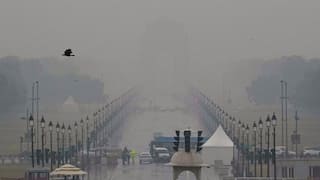'Conflict Shouldn't Escalate Beyond Gaza': Blinken During 4th Middle East Tour
US Secretary of States Antony Blinken stressed that it is in the best interest of all involved to avoid escalating the conflict or allowing it to extend beyond Gaza.

During his recent tour of the Middle East, United States Secretary of State Antony Blinken emphasised that he aims to ensure that the conflict in the Middle East "doesn't spread" while engaging in discussions during his visits to Turkey and Greece. This marks Blinken’s fourth diplomatic tour since the Israel-Hamas war erupted three months ago.
Blinken convened with Greek Prime Minister Kyriakos Mitsotakis in Crete following an extensive meeting with Turkish President Recep Tayyip Erdogan in Istanbul earlier the same day.
Expressing concerns about the Israel-Lebanon border, Blinken asserted the importance of all efforts to prevent any escalation, highlighting this during remarks to journalists in Crete after the meeting.
"One of the real concerns is the border between Israel and Lebanon, and we want to do everything possible to make sure we see no escalation," he was quoted by AFP.
He stressed that it is in the best interest of all involved to avoid escalating the conflict or allowing it to extend beyond Gaza.
This comes after Israel and the Lebanon-based Hezbollah engaged in intense cross-border exchanges on Saturday, marking one of the most significant days of recent weeks' conflicts. The escalation occurred a day after the leader of the militia, Sayyed Hassan Nasrallah, called for retaliation following the targeted killing—presumably by Israel—of Saleh Arouri, Hamas' deputy political leader, in Lebanon's capital.
ALSO READ: Hezbollah Fires 60 Rockets At Israel As 'Initial Response' To Killing Of Top Hamas Leader
Blinken initiated his recent Middle East journey in Turkey, where the Biden administration believes there is potential influence, especially concerning Iran and its proxies, to alleviate concerns of a regional crisis. Recent incidents in the Red Sea, Lebanon, Iraq, and Iran have heightened these fears. Notably, a drone launched by the Houthi militant group in Yemen, controlled by them, was shot down by the U.S. destroyer Laboon near commercial vessels in the Red Sea, as reported by the US Central Command.
During discussions with Turkish President Recep Tayyip Erdogan and Foreign Minister Hakan Fidan, Blinken sought support for emerging plans for post-war Gaza. These plans could involve financial or in-kind contributions to reconstruction efforts and potential participation in a proposed multinational force operating in or near the territory.
Subsequently, Blinken visited Greece, a North Atlantic Treaty Organization (NATO) ally and Turkish rival, meeting Prime Minister Kyriakos Mitsotakis, who has been supportive of U.S. efforts to prevent the escalation of the Israel-Hamas conflict.
Other stops in Blinken's itinerary include Jordan, followed by visits to Qatar, the United Arab Emirates, and Saudi Arabia. His agenda includes a visit to Israel and the West Bank before concluding the trip in Egypt.
The EU's foreign policy chief is also set to visit Saudi Arabia, aiming to kick-start a European-Arab initiative that aims to revive a peace process leading to a two-state solution for the Israeli-Palestinian conflict.
Trending News
Top Headlines





































